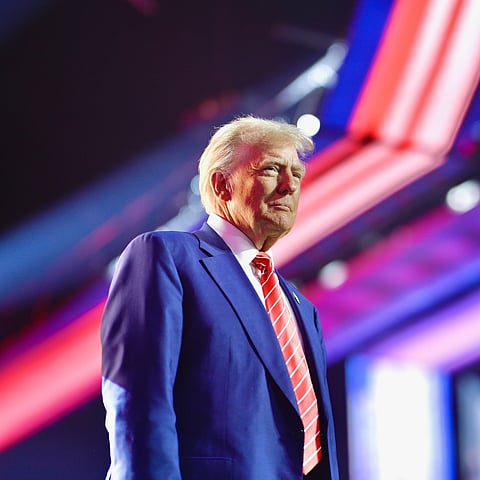
- NEWS
- the EDIT
- COMMENTARY
- BUSINESS
- LIFE
- SHOW
- ACTION
- GLOBAL GOALS
- SNAPS
- DYARYO TIRADA
- MORE

Local exporters to the United States, including of pineapples and ammunition, are suffering from the 19-percent tariff recently imposed by President Donald Trump, a development that is worrying Filipino legislators.
During the Senate Committee on Economic Affairs and Foreign Relations hearing on Thursday attended by Department of Trade and Industry officials, Trade Undersecretary Allan Gepty confirmed that the country’s key exports are being impacted by the unilateral 19-percent reciprocal tariff.
However, Gepty said the Philippine negotiators are not yet done asking the US to reconsider exempting some Philippine exports from the tariff.
“We have this option to negotiate. We are a treaty ally of the US, and it is one of the many highlights of our current negotiation. As we told them, it is not just trade that we partnered with the US, but in all aspects,” he said to questioning by lawmakers.
Senator Imee Marcos called the 19-percent tariff on all US-bound Philippine exports “fake and invaluable,” in contrast to the concessions won by other US allies, which got 15 percent, particularly Japan.
“It’s not just us who have this predicament who suffer from the high tariffs, just like Canada and Mexico. Those who got 15 percent offered 99 percent of their products to the US market. We did not do that. We will not allow ourselves to be at a disadvantage,” Gepty stressed.
On ammunition, committee chairperson Senator Miguel Zubiri revealed that Armscor Global Defense Inc., a local firearm manufacturing company, has laid off almost 500 employees as it can no longer compete in the US market due to the imposed levy.
Zubiri also expressed concern about the fate of Del Monte Philippines, an exporter of world-class pineapples from Bukidnon, after hearing that the company is also suffering from the tariff imposed by Trump as part of his so-called “Liberation Day.”
For her part, Trade Secretary Cristina Roque said that along with other agencies, they are undertaking necessary steps to help the country’s domestic industries address and mitigate the impact of tariff challenges.
“The Philippine government is also expanding the country’s FTA (free trade agreement) network to provide preferential and alternative markets for our exporters. In fact, we just concluded our Comprehensive Economic Partnership Agreement with the UAE, and currently we are negotiating an FTA with the European Union and Chile,” she said.
“In terms of engaging with the United States, let me emphasize that the negotiations are still ongoing. We are working hard, looking for possible ways to enhance bilateral trade and investment, especially in the context of the Framework on Reciprocal Trade,” she said.
The US ranks third in terms of the country’s total trade, and is the Philippines’ leading export market, as well as the country’s fifth import supplier.
To date, the country’s total trade amounted to $20.3 billion, with a trade balance at around $4 billion in favor of the Philippines.
In terms of net foreign direct investments, the US ranked fourth with $111 million in 2025, with key investment activities in administrative and support services, manufacturing, real estate, and transportation and storage.
On 7 August, the United States implemented its country-specific reciprocal tariffs on 69 countries.
For countries not imposed reciprocal tariffs, a baseline tariff rate of 10 percent will apply.
In addition to the reciprocal tariffs, the United States is also implementing Section 232 tariffs on certain products to protect US national security interests based on investigations by the US Department of Commerce.
Currently, products subject to existing Section 232 tariffs include copper, steel, aluminum, and automotive parts. Investigations are ongoing for other products, including trucks, aircraft, and aircraft parts, timber and lumber, pharmaceuticals, semiconductors, and critical minerals.
